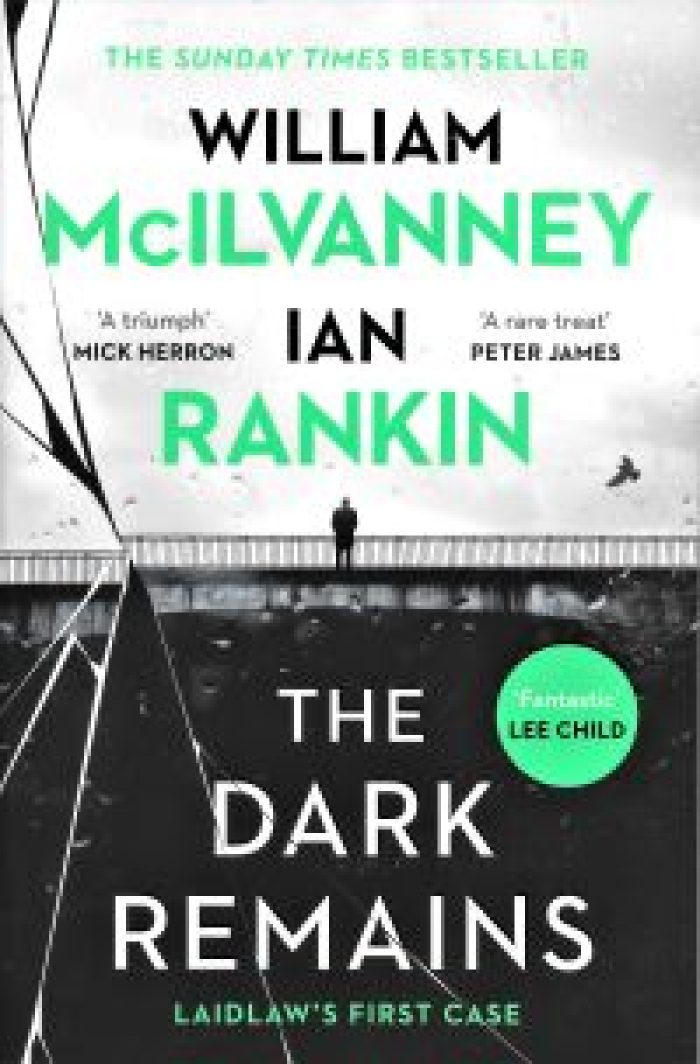WHERE does one depart the scene and the other step on to the trail?
This is the fascinating additional poser sure to tease readers of The Dark Remains, another welcome addition to the rapidly expanding Scottish noir section of my bookshelves.
As the cover exclaims, two highly noteworthy names share credit for its authorship. A duo of the crime fiction scene, not only on their native turf but anywhere devotees of the genre gather.
When the legendary William McIlvanney died in December 2015 he left behind a half-finished handwritten draft of another taut tale featuring the perceptive hard man detective Jack Laidlaw.
Who better to complete the story than Ian Rankin, a long-time devotee and who most crime fiction fans would see as McIlvanney’s natural successor?
Big boots to fill, a huge responsibility, the onus to succeed immense.
Even more so because this book tracks back to when Laidlaw first appeared among the thieves, killers and no-hopers of Glasgow’s seamy underbelly. To a time before McIlvanney had established himself with the gripping tales that comprise his award-winning trilogy of Laidlaw dramas.
The task facing Rankin, therefore, was not only to gather the threads of a half-told story and run with it, but also to create the man’s history. Explain his beginnings, define his character and how it was formed.
Whatever he wrote needed to knit seamlessly with the story in hand but also with the three that had already been greeted with universal acclaim.
And so it came to pass . . . The Dark Remains appeared in 2021 with its double-headed byline and was greeted with no less praise than McIlvanney’s previous solo work.
Rightly so, too.
All the gritty sharp dialogue is there. The settings are vividly penned. The richly diverse cast of characters come sharply to life before your eyes.
And the plotting of Laidlaw’s determined battle to sort out Glasgow’s warring gangs grips and thrills from start to finish.
It’s fascinating to see how McIlvanney (and/or Rankin) steer well clear of clear cut lines of good and evil, of the good guys (the cops) versus the bad guys (the gangsters and their henchmen).
Misplaced loyalties are to be found on both sides of the divide. There is acceptance of an honour among thieves. As events daily reveal in today’s society, not all cops are honest; life is far from black and white but more a murky shade of grubby grey.
This is the era before mobile phones, car trackers, instant messaging and other devices. It thus becomes a fascinating insight into recent social history, a record of only a generation away yet which must seem almost mediaeval to younger readers.
The taut and brittle dialogue has more impact than any text message. Dark and sinister and all very credible.
And hovering over it all is that intriguing question – which is so easy to forget at the time of reading – of who wrote what; where does McIlvanney depart and Rankin begin?
Or is there no sharp divide but a happy and skilful blending of the two masters of the noir?
Fascinating. A great read.
